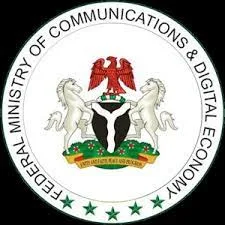ITREALMS ... making leadership SENSE with digital news!
Some reasons have emerged as to why Nigeria and Republic of Niger entered a bilateral deal in Abuja, reports ITREALMS.Sources close to the venue of the deal endorsement, informed ITREALMS it was for coordination of frequency utilisation along their borders to ensure seamless deployment of services around within the two countries.
Also, ITREALMS gathered that the ceremony was one of the highlights of the two-day Digital Economy Regional Conference, hosted by the Nigerian government and facilitated by the Federal Ministry of Communications and Digital Economy, which ended at the Transcorp Hilton Abuja at the weekend.
Nigeria’s Minister of Communications and Digital Economy, Isa Ali Ibrahim Pantami, signed on behalf of Nigeria, while his Nigerien counterpart, the Minister of Post and New Information Technologies, Moussa Baraze, signed on behalf of his country.
Equally a press statement from the office of Director of Public Affairs, at the Nigerian Communications Commission (NCC), Mr. Rueben Muoka, quoted the Executive Vice Chairman and Chief Executive Officer (EVC/CEO) of NCC, Prof. Umar Danbatta and Niger Republic’s Chairperson of the National Council for Regulation of Electronic Communications and Post, Mrs. Aichatou Oumani, as witnesses to the deal, which applied to the co-ordination of frequencies existing in the Nigeria-Niger transboundary areas between 87.5 megahertz (MHz) to 30 gigahertz (GHz).
The agreement indicated it will help in effective coordination and sharing of frequencies and channels in the ‘buffer zone or area’ on borderlines between the two countries and also help to address one of the major issues of signal interference regulation that may arise in telecoms signal transmissions by terrestrial telecoms service providers, as it spells out the procedures for regulating such cases.
According to the two parties, the deal provides, in part, that in case of harmful interference affecting one of the parties, the affected party shall inform the other party in writing for necessary action to be carried out.
“Also, the party from whence the interference is originating shall ensure that all necessary means are used to resolve the harmful interference within 30 days of receipt of the notice” part of the deal stated.
Further, ITREALMS gathered that while the deal is without prejudice to the rights and obligations of the parties specified in the Convention, the Constitution of the International Telecommunication Union (ITU) and other inter-governmental arrangements, it states, however, that the land and mobile services whose use is restricted for security, maritime and national defence or for which information is not available, shall not be subjected to the provisions of the agreement.
Chuks Egbune/Editor
Featured post @ITREALMS
Monday, February 06, 2023
Why Nigeria, Niger Republic signed deal on border frequency coordination - ITREALMS
Labels:
Border,
Coordination,
deal,
frequency,
ITRealms,
Niger Republic,
Nigeria,
signed,
Why
Subscribe to:
Post Comments (Atom)




No comments:
Post a Comment